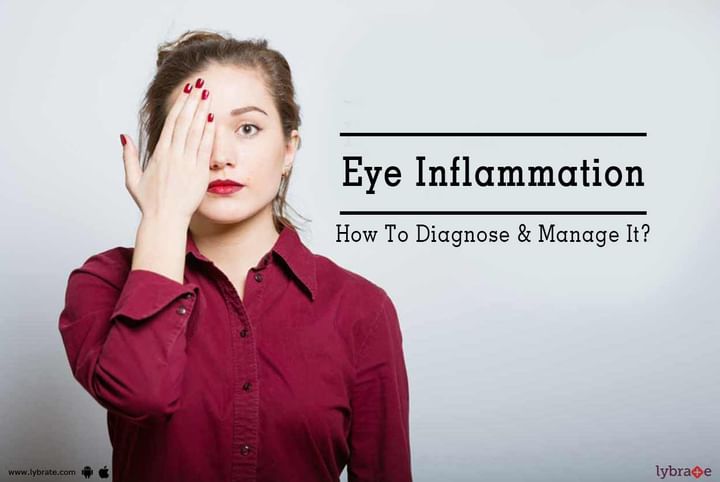Eye Inflammation - How To Diagnose & Manage It?
Some parts of our body like our eyelids are ignored until we face a problem related to it. One such ailment that affects our eyelids is the swelling of the eyelid. This can affect both the upper and lower eyelid and may or may not be painful. This is triggered by the inflammation of fluid in the connective tissues around the eye as a result of eye infections, injuries and allergies. It could also be a sign of a more serious health condition such as Graves disease, orbital cellulitis or ocular herpes.
Some of the symptoms you may notice with swollen eyelids are:
- Itchiness in and around the eye
- Excessive tearing
- Redness of the eyelid and white part of the eye
- Dry, scaly skin on the eyelid
- Obstructed vision depending on the extent of swelling
As mentioned above, these symptoms can be triggered by a number of factors. Allergic reactions to pollen, dust, dander, makeup and certain eye drops are the most common causes of swollen eyelids. The swelling of blood vessels in and around eyes is a common effect of histamines. Conjunctivitis or the inflammation of the inner lining of the eye can also result in swollen eyelids along with making the eyes water and itch. Bacterial infection or the inflammation of the meibomian gland in the form of styes can also make the entire eyelid swell. In such cases, the eyelid is also very tender to the touch. A blocked meibomian gland can also trigger the formation of a chalazion. This later develops into a hard sebaceous cyst which makes the eyelid swell.
An injury to the eye can also trigger inflammation and make the eye look swollen. Another common cause of eye infections is improper use of contact lenses such as not keeping them clean or swimming with lenses on.
The form of treatment best suited to you will depend on the underlying factors triggering the condition. In cases of allergic reactions being the trigger, antihistamine drops or lubricating ‘artificial tears’ could help relieve the symptoms. In more serious cases, your doctor may also prescribe mild steroid drops. Infections caused by conjunctivitis or ocular herpes usually respond well to antiviral and anti-inflammatory medication in the form of eye drops or ointments.
To prevent further aggravation of the condition, avoid rubbing your eyes and minimize touch to the area. Applying a cool compress over the eyes can also help relieve the itchiness and swelling. In addition to this, splash your face with cold water as many times a day as possible. Lastly, avoid wearing contact lenses for the duration of the infection.



+1.svg)
